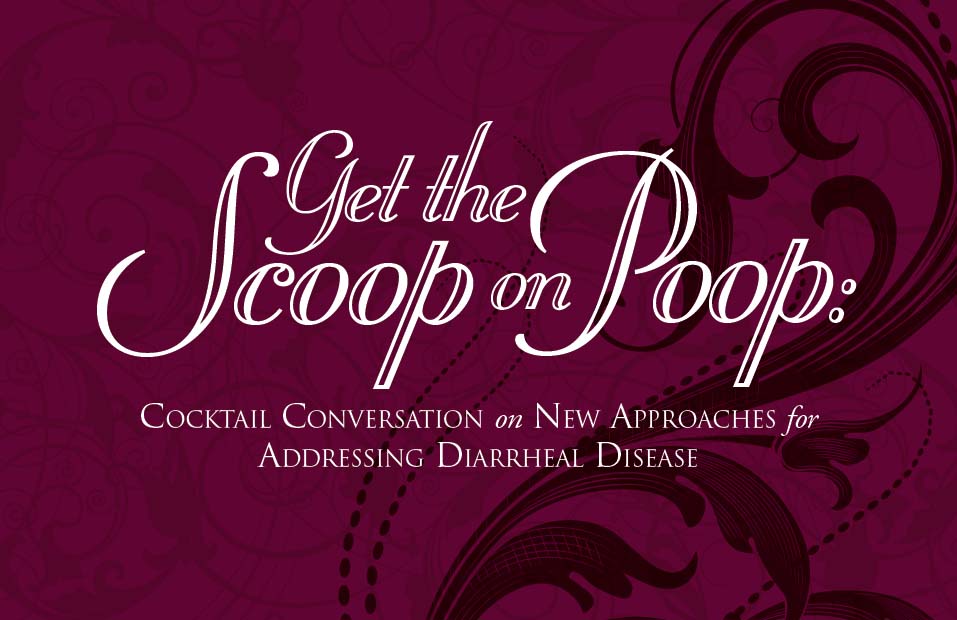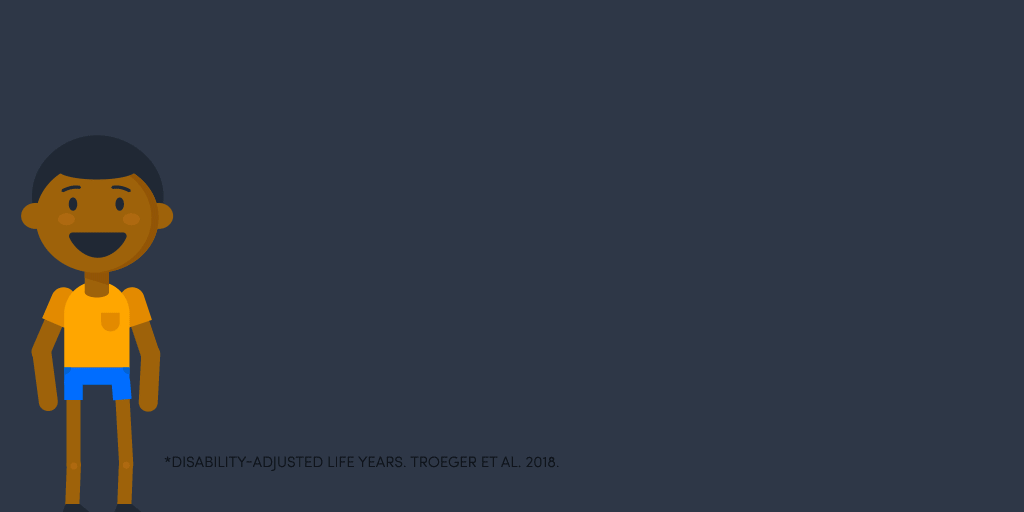
Why we can't stop talking about diarrhea

In 2008 I started a job at PATH to promote a childhood vaccine against a nasty infection called “rotavirus.” I had never heard of rotavirus but immediately learned that it’s a major killer – responsible for more child deaths around the world than any other form of diarrhea. In 2008, the vaccine had only been adopted in a handful of countries but was desperately needed in developing countries.
But there were some serious challenges. Like me, many people didn’t recognize the name rotavirus, even in the places where the most kids were dying. Second, while vaccines are the most effective way to prevent rotavirus, there are also other available solutions to prevent and treat diarrheal disease. We wanted to promote those, too.
The biggest problem, though, was that no one was talking about diarrhea. Since the 1980s, there had been no focused advocacy to bring attention to diarrheal disease. Other global health topics, like HIV/AIDS and malaria, were making headlines at conferences, in newspapers, at fundraisers, even on prime-time television.
 “Idol Gives Back” in 2009 was a high-visibility moment for malaria.
“Idol Gives Back” in 2009 was a high-visibility moment for malaria.
But despite its status as the second leading cause of child death, diarrhea was rarely mentioned.
Making Noise About Diarrhea
It’s a strange thing, we realized: We know how to stop it, but we don’t want to talk about it.
So, we started talking. We made an advocacy plan. Our team approached donors. We pored over funding numbers from WHO, puzzling over what paltry amount of money was being spent on diarrhea efforts. We tried to get New York Times reporters interested. We held events. We used humor and surprise, alongside data.
We wanted to create a voice for an unspeakable issue.
 Diarrhea is not a topic you typically discuss in polite company. For our first DefeatDD event, we decided to challenge business as usual.
Diarrhea is not a topic you typically discuss in polite company. For our first DefeatDD event, we decided to challenge business as usual.
Over time, more people began to acknowledge the threat of diarrhea. And slowly but surely, funding, political will – and most importantly, increased access to solutions – followed. This wasn’t just our doing, of course. We joined forces with many other health groups, funders, product developers, country champions and policymakers, and academics who cared deeply about the issue.
Child Deaths Decline
Between 2005-2015, child deaths from diarrhea plummeted by 30%. Today, toilets, clean water, and hygiene education are more widespread, and more mothers can easily get ORS and zinc at the first sign of illness. And rotavirus vaccines are available in more than 90 countries.
It’s incredible to realize that many children are alive today who would have died from diarrhea a decade or more ago. As a global health community, including at DefeatDD, we have much to celebrate.
Not Just Lives, But Futures
Despite this good news, the more we learn, the more we understand that we can’t stop making a stink. Why? While child deaths have dramatically declined, new data now shows that diarrhea doesn’t just threaten to rob children of their lives, but also their futures.

We now know that the long-term consequences of multiple diarrhea episodes are severe. Children who have repeated bouts, sadly common in many countries, can suffer for the rest of their lives. They’re often stunted, can have brain issues, and struggle in school. Their families pay dearly, in money and time – numbers that have recently been quantified. Those children grow up to be less productive and less healthy adults.
Significant. Solvable.
So, our message at DefeatDD has evolved. Diarrhea is still a significant, deadly issue: nearly half a million children die every year from this common illness. But it isn’t fair that children be saved, just to lose out on a happy, healthy life. We need to work to prevent as many bouts of diarrhea as we can. This means championing everything that we know works, including new tools (like vaccines against other diarrhea pathogens, including the nasty enterotoxigenic e. coli, or ETEC, and Shigella) that are in the pipeline.
We also need coordination, investment, and integration. These are really just fancy words for bringing people together, spending money on prevention and treatment, and giving all families access to all of the solutions.
We need new advocates – who can help us spread the word, educate others within the health community, and convince leaders not to let up the pressure.
We’ll keep working to break the poo taboo, until no child’s life is destroyed by diarrhea.


